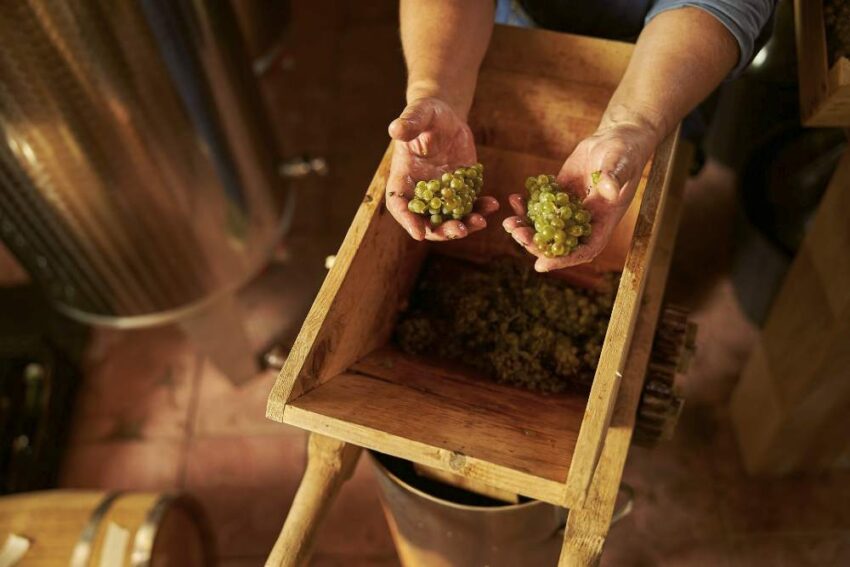Italy offers a unique blend of tradition, innovation, and profitability in its agriculture and wine sectors. For those seeking to diversify their portfolios and invest in Italy, these sectors present a compelling opportunity.
However, before investing in the Italian agriculture and wine industry, it is important to know about the intricacies of these sectors. Although you may know how to invest money in Italy already thanks to past experiences, the agriculture and wine industry’s ever-evolving landscapes make it a constant learning process.
Overview of Italian Agriculture and Wine Industry
Italy’s agriculture and wine sectors are pillars of its economy and culture. The country is one of the largest wine producers globally, with regions like Tuscany, Piedmont, and Veneto famous for their high-quality wines. Similarly, Italy’s agricultural sector is diverse, producing everything from olives and citrus fruits to grains and dairy products.
Why Invest in Italian Agriculture?
1. High-Quality Produce
Italy’s agricultural products are synonymous with quality and authenticity. The country’s strict regulations and traditional farming methods ensure that its produce, whether it’s olive oil, cheese, or fresh fruits and vegetables, meets high standards.
2. Geographical Advantage
Italy’s varied climate and fertile soil create ideal conditions for diverse agricultural activities. The country’s strategic location also facilitates easy access to European and global markets.
3. Sustainability and Innovation
There is a growing trend towards sustainable farming practices in Italy. Organic farming, biodynamic methods, and advanced irrigation systems are becoming more prevalent, appealing to environmentally conscious investors.
Emerging Trends in Italian Agriculture
- Organic Farming: With increasing global demand for organic products, Italy has become a leader in organic farming. Given the premium prices these products command, investing in organic farms can be profitable.
- Agri-Tourism: Combining agriculture with tourism, agri-tourism offers a unique investment opportunity. Tourists can experience farm life, participate in harvests, and enjoy farm-to-table meals, providing additional revenue streams for farm owners.
How to Invest in Italian Agriculture
1. Purchase Farmland
Investing directly in farmland is a straightforward way to enter the agricultural sector. Italy offers various options, from vineyards in Tuscany to olive groves in Puglia.
2. Partnerships and Joint Ventures
Partnering with local farmers or agricultural businesses can reduce the risks associated with entering a new market. Joint ventures can provide access to local expertise and established distribution networks.
3. Agri-Business Ventures
Starting or investing in agri-businesses such as processing plants, distribution companies, or organic farming enterprises can be highly profitable. This approach allows investors to benefit from the entire agricultural value chain.
Why Invest in the Italian Wine Industry?
Global Reputation
Italian wines are celebrated worldwide for their quality and variety. Due to the global demand for Italian wines, investing in a winery or vineyard in regions like Tuscany, Piedmont, or Veneto can be highly lucrative.
Cultural Heritage
Owning a winery in Italy is not just a business venture; it’s an opportunity to become part of a rich cultural heritage. Many Italian wineries, often family-owned and with a history spanning generations, have contributed to the global reputation of Italian wines. Investing in a winery in regions like Tuscany, Piedmont, or Veneto is not just a financial decision, but a chance to be a part of this legacy.
Tourism Appeal
Wine tourism is a growing trend, with tourists flocking to Italian wine regions to experience tastings, vineyard tours, and wine festivals. This creates additional revenue opportunities for wine producers through direct sales and hospitality services.
Emerging Trends in the Italian Wine Industry
- Sustainable Viticulture: There is a significant shift towards sustainable and organic wine production. Wineries adopting eco-friendly practices are gaining popularity, attracting both eco-conscious consumers and investors.
- Premiumization: The demand for premium and super-premium wines is increasing. Investing in high-quality vineyards that produce exclusive wines can yield substantial returns.
How to Invest in the Italian Wine Industry
1. Buying a Winery
Purchasing an existing winery is a popular investment route. This option allows investors to benefit from established brands, existing customer bases, and operational infrastructure.
2. Investing in Vineyards
Owning a vineyard provides control over wine production from the ground up. Investors can focus on cultivating high-quality grapes and selling them to winemakers or producing their own wine.
3. Wine Tourism Ventures
Developing a wine tourism business, including tasting rooms, boutique hotels, and event venues, can diversify income streams and enhance profitability. The combination of wine production and tourism capitalises on Italy’s strong tourism industry.
Key Considerations for Investors
- Legal and Regulatory Environment: Understanding Italy’s legal and regulatory framework is crucial, but it doesn’t have to be daunting. Consulting with legal experts and business advisors who specialise in the agriculture and wine sectors can provide the necessary guidance to navigate these complexities, ensuring your investment is secure and compliant.
- Market Research: Conduct thorough market research to identify the best investment opportunities. Understanding consumer trends, competition, and market demand will help make informed decisions.
- Financial Planning: Assess the financial requirements and potential returns of your investment. Consider factors such as initial capital, operational costs, and expected revenue.
Investing in Italy’s agriculture and wine industry offers a blend of tradition, innovation, and profitability. By understanding the market dynamics, leveraging emerging trends, and navigating the legal landscape, investors can tap into the lucrative opportunities these sectors present. Whether purchasing farmland, acquiring a winery, or starting an agri-business, Italy provides a fertile ground for investment success.

